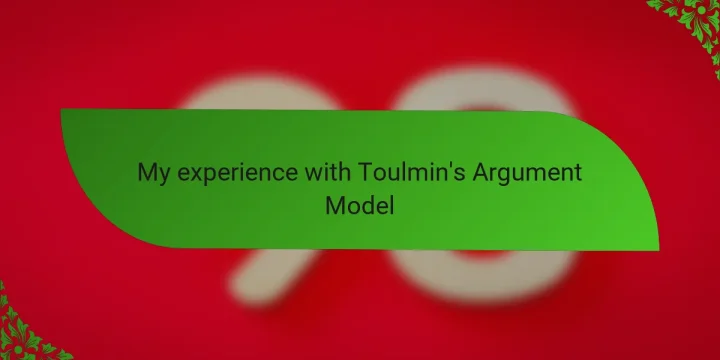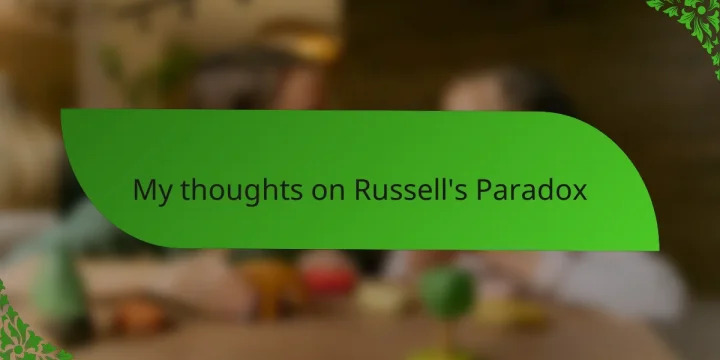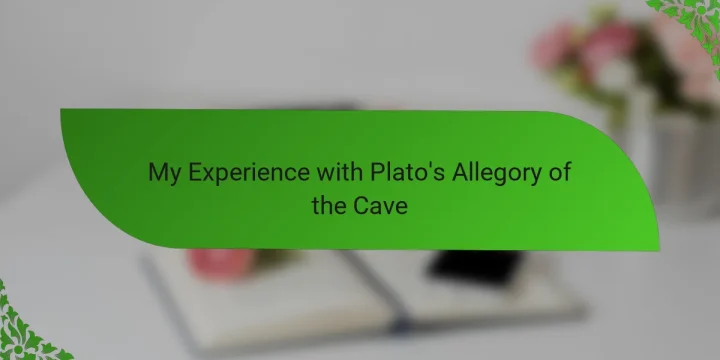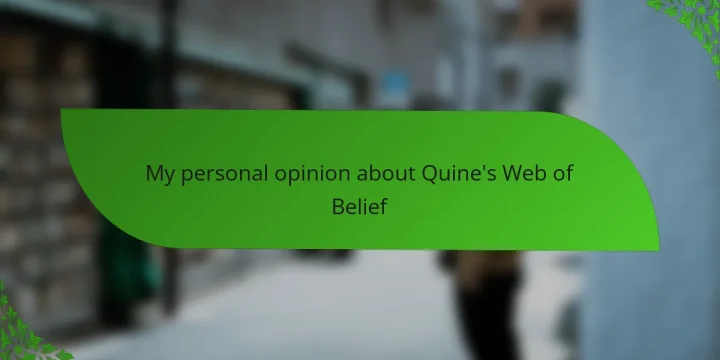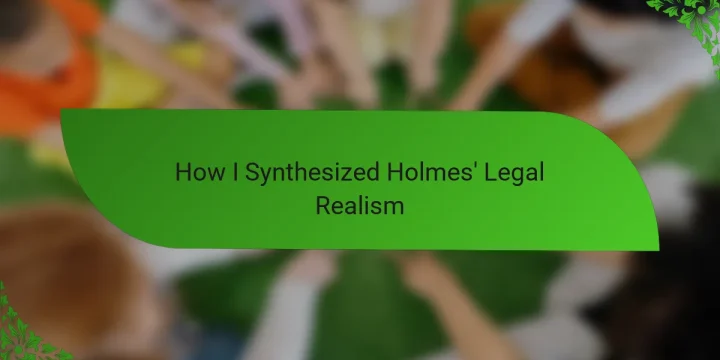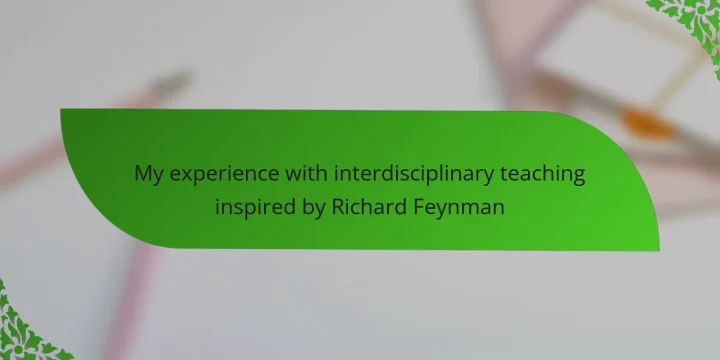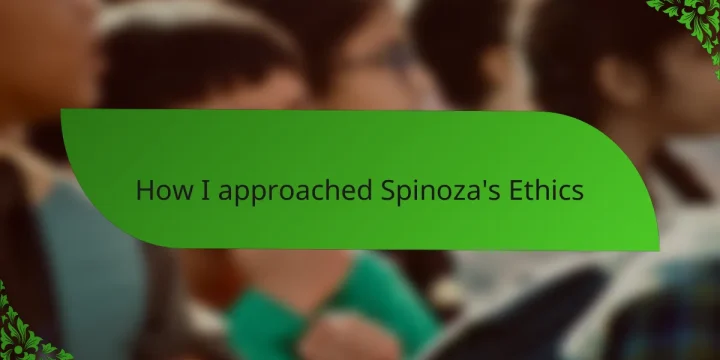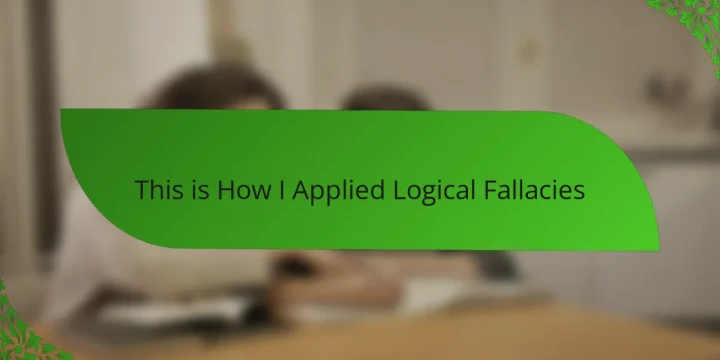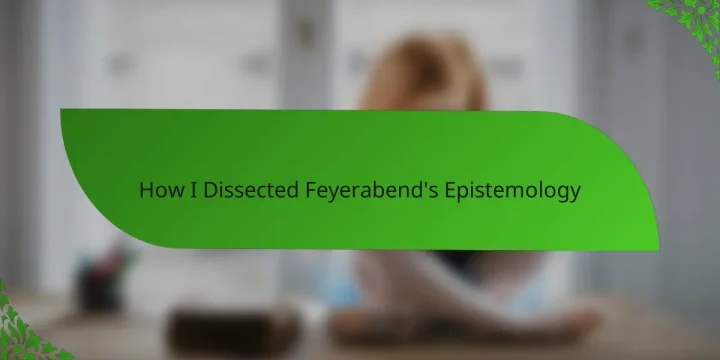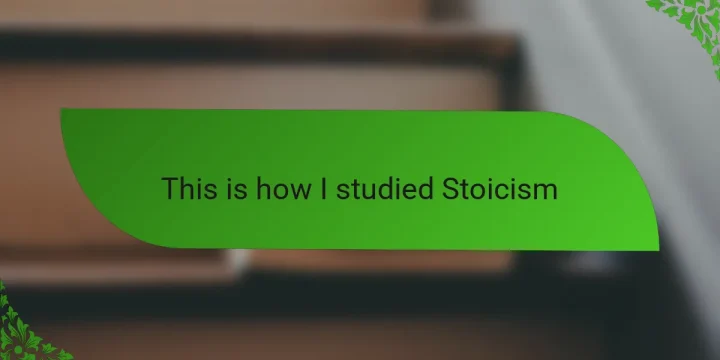
Key takeaways Stoicism emphasizes focusing on what is within our control, fostering calm acceptance amidst life's chaos. Key texts like Epictetus’s *Enchiridion*, Marcus Aurelius’s *Meditations*, and Seneca’s letters offer practical tools and insights for applying Stoic principles. Consistent study habits, including journaling and applying Stoic concepts to daily challenges, enhance personal understanding and growth. Viewing obstacles as opportunities for growth transforms challenges into valuable lessons, reinforcing the importance of resilience and perspective in Stoicism. Understanding Stoicism Principles Stoicism, to me, first revealed itself through its focus on what we can control versus what we can’t. I remember feeling overwhelmed by life’s chaos, and this simple distinction shifted my mindset profoundly. Have you ever caught yourself obsessing over things completely out of your hands? That’s the moment Stoicism steps in, urging…
